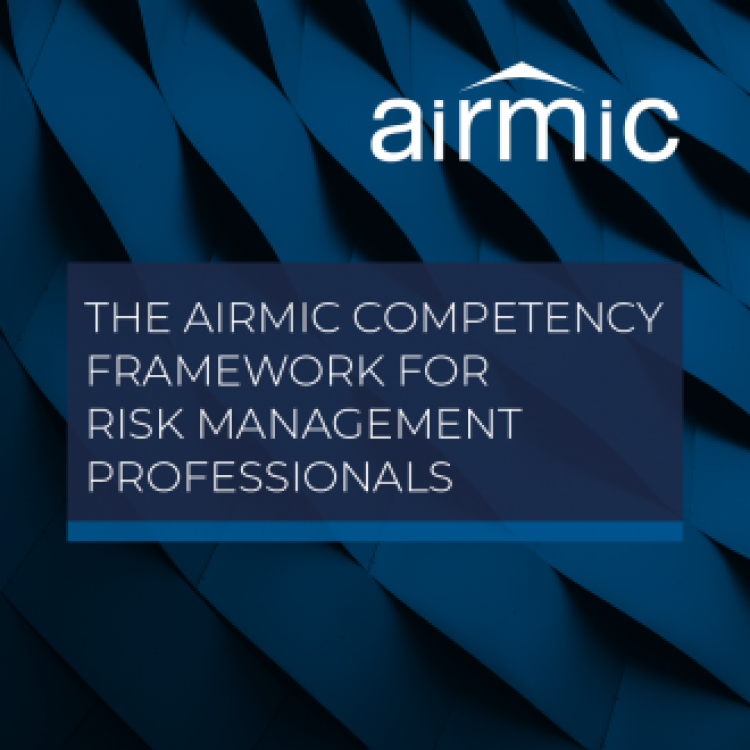Airmic's Competency Framework for risk management professionals updated

Updated framework combines technical expertise with business acumen, Adam Ireland explains.
Disruption is increasingly seen as the new normal, and no industry is exempt from change. Although technology is accelerating transformation, people still take the decisions that drive change.
The risk landscape has grown more complex, connected, rapid and uncertain. For the risk management professional this demands a shift in emphasis from technical know-how towards a more complementary business understanding.
Initially launched last year, in February 2021 Airmic updated its Competency Framework for Risk Management Professionals. Consisting of four components, equally weighted, the framework exists as a guide for risk management professionals as to the evolving capabilities and competencies needed for success, and the resources available to Airmic members to develop those competencies.
At the heart of the new framework is the ethos that risk professionals need to become strategically aligned enablers and business partners within their organisation. Achieving this might require a change of mindsets, and also to ensure competencies move at the pace necessary to operate as part of an integrated and collaborative team within their organisations.
The new components are:
- Core Principles - what is expected of the risk management professional and how they should act
- Risk Management Attainment & Development - the level of professional knowledge and skills a risk management professional must have, typically set out as standards, and achieved through study and ongoing professional development
- Business Awareness competencies - what the risk management professional must know and do to be able to add business value
- Behaviours - how the risk management professional should act in carrying out their job role, allowing them to interact successfully with others.
Five proficiency levels complement these competencies, from entry through to authoritative level, which further guide the risk professional on career stages, capabilities required at each stage, and how these are obtained.
Adam Ireland, learning and development manager at Airmic, explained: “We’re delighted to update and re-release the Airmic Competency Framework and hope that it gives Airmic members the opportunity to use it as an important tool to develop new capabilities and progress their careers.
“We plan to use the Competency Framework further during the year to identify how the different Airmic member services align to these competencies to enable members to consume Airmic content and forge a development path tailored to their particular needs.”
Resilience and agility will be crucial, when faced with disruption and uncertainty, Ireland suggested.
“We can all apply this not just on an organisational level, but on a personal level, too, as we pursue our careers and the capabilities that make them successful,” Ireland added.
Find out more about the Airmic Competency Framework for Risk Management Professionals on the Airmic website. The recent Airmic fastTrack session “The Airmic Competency Framework & Your Professional Journey” is also available, here.
